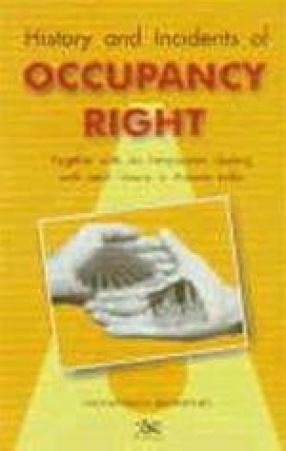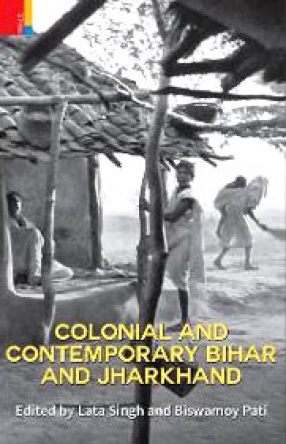‘Land Tenure’ and ‘Occupancy Right’ have for long exercised the minds of monarchs and governments all over, particularly in an agricultural country. The book seeks to present in a clear historical perspective the various vicissitudes the occupancy right had witnessed from the earliest times. Our Hindu kings had naturally allowed the proprietary right in agricultural land to vest in the cultivator himself. In spite of the practice of a regular payment to the treasury of what was supposed to be a voluntary offering by the ryots for the numerous services rendered by the state, the crown never assumed ownership of such a land. The author recounts graphically the fluctuating fortunes of the tiller under the various Muslim rulers who for reasons of administrative convenience and extension of patronage caused the emergence of a new intermediate class of landholders. But by and large the occupancy right of the grower was not interfered with until the grant to the East India Company of the Dewani of Bengal, Bihar and Orissa by Shah Alum. The establishment of a good government and improvement in commerce effected by the British made things much worse. Demand for land rose phenomenally and this created insurmountable hardships for the ryots of the country with dispossession becoming the order of the day. The book deals thoroughly with protective guarantees offered by Act X of 1859. The new legislation unequivocally conferred the right of occupancy on the cultivator and clearly provided against his eviction from the piece of land he had held for a continuous period of 12 years. The author recalls here that though the new dispensation did provide the much-needed succour to the hard-hit ryots and the tenants-at-will, it certainly suffered from glaring inadequacies and failed to anticipate the abuse into which some of its loopholes could result. This was later taken care of by another legislation known as the Bengal Tenancy Act of 1885. It is indeed a refreshing analysis of the several stages that the ‘Occupancy Right’ had to negotiate till it was finally validated by the British Govt. The incidents of the right have also been imaginatively discussed in the book.
Bhagat Singh: Ideas on Freedom, Liberty and Revolution: Jail Notes of a Revolutionary
It is a collection of ideas ...
$60.30
$67.00





There are no reviews yet.